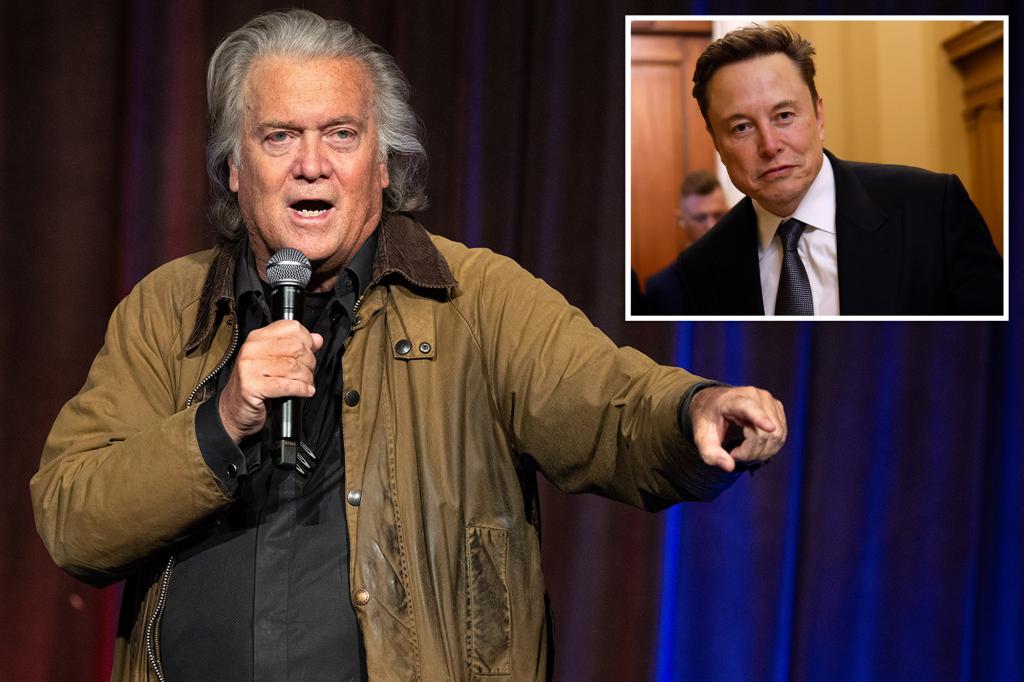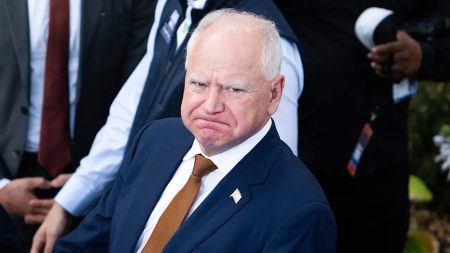Steve Bannon, the right-wing political strategist and former White House chief strategist, has launched a blistering attack on Elon Musk, vowing to restrict the tech billionaire’s access to the White House should Donald Trump win the 2024 presidential election. This sudden shift in stance follows weeks after Bannon initially praised Musk’s potential influence and financial contributions to the MAGA movement. The catalyst for this dramatic turnaround appears to be a disagreement over H1-B visas, which allow US companies to employ foreign workers in specialized occupations.
Bannon’s animosity towards Musk stems from the tech magnate’s staunch defense of the H1-B visa program, a position that clashes with Bannon’s hardline stance on immigration. Bannon accuses Musk and other tech leaders of manipulating the immigration system for their own benefit, arguing that they exploit foreign workers to depress wages and undermine American jobs. He further alleges that the American public is outraged by this practice and that Musk’s support for the H1-B program demonstrates a disregard for the concerns of ordinary citizens. This disagreement over immigration policy has ignited a broader conflict within the MAGA movement, pitting tech industry figures against immigration hardliners.
The conflict escalated further with Bannon’s personal attacks on Musk, labeling him an “evil” and “bad” person and calling for his exclusion from White House circles. He vowed to prevent Musk from having any special access, insisting that he would be treated like any other member of the public. Bannon’s accusations extend beyond the H1-B visa issue, encompassing broader criticisms of Musk’s character and motivations. He accuses Musk of being solely driven by the pursuit of wealth and power, alleging that he would prioritize his own financial interests over the well-being of the country. This personal animosity suggests a deeper ideological rift between Bannon and Musk, despite their shared support for Trump’s political agenda.
Bannon’s diatribe against Musk also included attacks on other prominent tech figures, notably Peter Thiel and David Sacks, whom he grouped with Musk as “white South Africans” and accused of being racist. While Thiel is German-American and spent part of his childhood in Southern Africa, Bannon’s comments appeared to generalize and stereotype individuals based on their origin, linking them to racism. This line of attack reveals Bannon’s nationalist and anti-globalist sentiments, which extend beyond specific policy disagreements to encompass broader cultural and racial anxieties. His rhetoric aims to paint Musk and other tech billionaires as outsiders who are out of touch with the concerns of ordinary Americans.
The clash between Bannon and Musk highlights the complex and often contradictory alliances within the MAGA movement. While Musk has publicly embraced increasingly conservative viewpoints and supported Trump’s presidential bid, his stance on H1-B visas and his global business interests put him at odds with Bannon’s nationalist agenda. This internal conflict underscores the inherent tensions between the pro-business, free-market wing of the Republican Party and the populist, anti-immigration faction represented by Bannon. The dispute over immigration policy, therefore, reveals a deeper ideological struggle for the soul of the MAGA movement.
Despite their differences, Bannon has at times acknowledged Musk’s potential value to the MAGA movement, particularly his financial resources and influence. Prior to their falling out, Bannon recognized that Musk’s financial support and engagement in European politics could significantly advance a populist agenda. He even went as far as to describe Musk’s contribution to Trump’s election campaign as substantial, highlighting the billionaire’s ability to sway public opinion and electoral outcomes. This pragmatic perspective reveals the complex and often opportunistic nature of political alliances, where even bitter rivals may find common ground based on shared interests or perceived mutual benefits. This highlights the fluctuating dynamics within the MAGA movement, where alliances can shift rapidly based on political expediency and personal interests.











